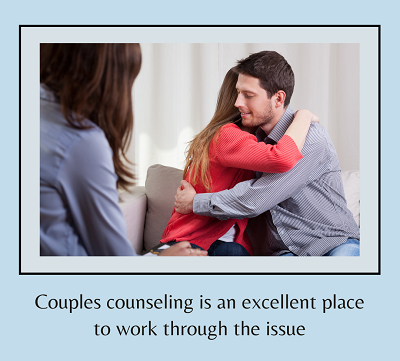You’re trying something, a little experiment. Lately, he’s been glued to his phone.
You see a smile playing at his lips…
“What’s making you smile?” you ask.
Immediately, as if you just electrocuted him, he snaps back to attention.
“Nothing.”
You know it’s not nothing.
When it is nothing, he tells you. When he’s reading the news, he’ll say “news.” When he’s texting Joe, he’ll mumble Joe, without looking up.
So yeah, it doesn’t seem like nothing.
His social media offers some clues; there’s this woman. She’s his coworker. She’s quick to ‘like’ all his social media posts… except when it’s a picture that includes you.
But since that’s becoming less frequent, her ‘likes’ seem to be increasing.
When you ask him about her, he insists: she’s just a work friend.
What is Micro-Cheating?
Micro-cheating is a less blatant form of cheating. The partner engaging in the act may not even be fully aware of what they’re doing, and how detrimental it can be to their current relationship.
Micro-cheating involves cultivating emotional intimacy with someone outside of the parameters of a current relationship, in a way that could hurt the other party in the relationship.
Similar to emotional cheating, there is usually no touching or physical intimacy. While a true definition of micro-cheating can vary slightly according to personality and comfort level in a relationship, signs of micro-cheating are:
-
overly flirtatious behavior (sometimes sexual in nature)
-
sharing phone numbers
-
hiding a wedding ring or lying about relationship status
-
maintaining an inappropriate relationship with an ex
-
becoming overly involved in someone else’s social media
-
frequent flirtatious messaging
While it’s more covert than the steamy lust-induced physical kind of cheating, micro-cheating can be just as damaging. When left to continue unchecked, it has the potential to segue into emotional – or even full-blown cheating.
Why Do People Micro-Cheat?
People tend to micro-cheat for a variety of reasons. Some are motivated by low self-esteem, and love the excitement and attention from someone new.
Others may feel bored and unfulfilled in the current relationship.
Poor communication, lack of intimacy, and undefined boundaries around what is and isn’t appropriate within the relationship can all be contributing factors behind micro-cheating.
How to Recognize if Your Partner is Micro-cheating
Signs of micro-cheating involve some of the same indicators as other forms of infidelity, such as:
1.Secrecy
If your significant other is always preoccupied by their phone, never leaving it unattended and always pointing the screen away from you, this could be indicative of something going on.
2. Checked Out
Another tell-tale sign is if they’re totally checked out. If they’re either on their phone or spaced out whenever you spend time together. If they seem distracted or disengaged, those are all signs their mind is preoccupied with something (or someone) else.
3. A Friendship You’re Uncomfortable With
There’s nothing wrong with being friendly with coworkers or members of the opposite sex. However, if you feel uncomfortable or unsure about a close relationship they’re forming with a coworker or another person, this could be a potential scenario where micro-cheating may occur.
You Think They’re Micro-Cheating, Now What?
If you suspect your partner may be micro-cheating, before you speak to them, take a moment to reflect.
What are your boundaries?
What makes you feel uncomfortable? What are you not okay with, and why?
When speaking with them, the point is not to be accusatory or defensive. You just want to be clear about the relationship, and share how it makes you feel.
In situations where you’re faced with a challenging conversation, one that signifies the relationship itself could use a little help, couples counseling is an excellent place to work through the issue. It gives you the space to be vulnerable, heard, and gives an opportunity to explore boundaries. By working with an expert, you and your partner are empowered to communicate in a healthy manner, and these skills and tools can be used throughout your relationship and when communicating with others.
At the Relationship Therapy Center, our Gottman trained therapists have helped couples rebound from all sorts of challenges in relationships. If this is something you think you could benefit from, give us a call. We’d love to hear what you’re going through, and share how we can help.
Begin Couples Counseling in the Sacramento Area:
If you are ready to learn how to deal with the problems in your relationship, the therapists at The Relationship Therapy Center in Fair Oaks, CA and Roseville, CA can help! Our therapists are ready to support you and your partner in your journey towards creating a healthy and happy relationship. To begin counseling in Roseville, CA area, or counseling in Fair Oaks, please follow these three simple steps:
-
Contact our counseling office to get more information about couples counseling and to schedule a free consultation
-
Make an appointment with one of our Gottman Method trained therapists
-
Find support and healing in your relationship!
Other Services offered at The Relationship Therapy Center in California:
In addition to couples counseling, Our Sacramento area counseling clinics located in Roseville and Fair Oaks, CA are pleased to offer a variety of mental health services. Our couples services include: Couples Counseling, Counseling after infidelity, sex therapy, co-parent counseling, family therapy, divorce counseling, intensive couples retreats, and premarital counseling. Our individual therapy services include anxiety treatment, therapy for children, teen therapy, depression treatment, codependency counseling and individual relationship counseling. Our therapists offer online counseling in California to treat a variety of mental health concerns. Please reach out to our Sacramento area therapy office to learn more about the many ways we can help you or your loved ones.



